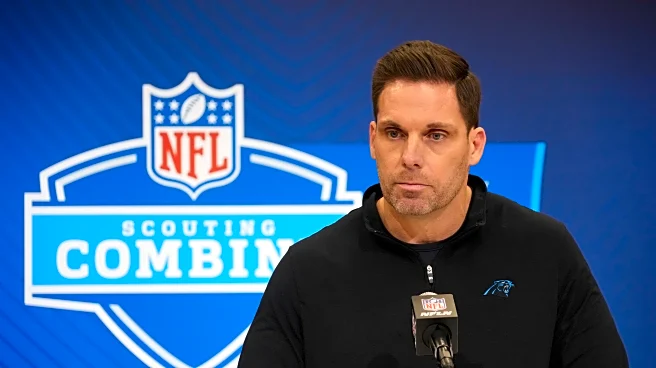What's Happening?
Consumer confidence in the United States has declined for the second consecutive month, driven by concerns over job security, inflation, and the broader economic outlook. According to the University of Michigan, consumer sentiment has been negatively impacted by fears of job losses and rising prices, with many consumers expressing concerns about tariffs and their effect on the economy. The Bureau of Labor Statistics has reported a significant revision in job growth figures, indicating a potential reduction in payroll growth by 911,000 jobs.
Why It's Important?
The decline in consumer confidence is a critical indicator of economic health, as it can influence consumer spending, which is a major driver of the U.S. economy. The combination of rising inflation and a cooling job market presents challenges for policymakers, particularly the Federal Reserve, which must balance efforts to control inflation with the need to support employment. The situation could lead to changes in monetary policy, including potential interest rate cuts to stimulate economic activity.
What's Next?
The Federal Reserve is expected to address these economic concerns in its upcoming meeting, with potential adjustments to interest rates to support the labor market. Economists and policymakers will closely monitor consumer spending patterns and employment data to assess the need for further intervention. The ongoing impact of tariffs and trade policies will also be a key area of focus, as they continue to affect consumer prices and economic sentiment.










